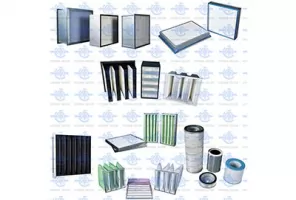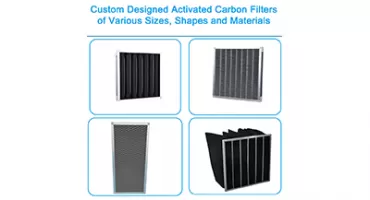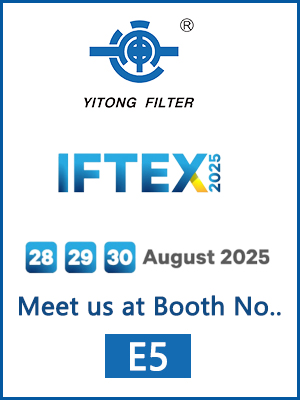 February 21, 2024
February 21, 2024
In hospitals and clinical settings, maintaining high air quality isn't just about comfort—it's a critical factor that directly impacts patient health outcomes and the integrity of scientific research.
1. Patient Health:
- Clean air reduces the risk of healthcare-associated infections (HAIs), which are a significant concern in hospitals. According to the CDC, HAIs affect 1 in 31 hospital patients each day in the United States.
- Improved air quality lowers the concentration of airborne pathogens, such as bacteria and viruses, reducing the likelihood of cross-contamination between patients and healthcare workers.
- Studies have shown that poor air quality exacerbates respiratory conditions and can lead to complications for patients with compromised immune systems.
2. Surgical Environments:
- Operating rooms require pristine air quality to minimize the risk of surgical site infections (SSIs). Research indicates that SSIs occur in up to 5% of surgical procedures, leading to extended hospital stays and increased healthcare costs.
- Proper ventilation and filtration systems in surgical suites ensure the removal of airborne particles and bacteria, maintaining a sterile environment for procedures ranging from minor surgeries to complex organ transplants.
3. Laboratory Research:
- Air quality is equally crucial in clinical laboratories, where experiments and analyses are conducted. Contaminants in the air can compromise the integrity of research findings and lead to erroneous conclusions.
- Maintaining precise environmental conditions, including air quality, is essential for experiments involving cell cultures, genetic sequencing, and drug development. Even minor fluctuations in air quality can disrupt experimental outcomes.
4. Data Center Applications:
- Hospitals rely on data centers to store electronic health records (EHRs) and critical medical information. These facilities require strict temperature and humidity controls to prevent equipment malfunction and data loss.
- Proper air filtration and circulation prevent dust accumulation, which can damage sensitive electronic components. In healthcare, where access to patient records is vital for timely and accurate treatment, ensuring the uninterrupted operation of data centers is paramount.
In today's fast-paced world, where air quality is becoming a growing concern, H13 air filters stand out as an essential component in maintaining clean and healthy indoor environments. These filters offer distinct advantages over conventional filtration systems, making them indispensable in various applications.
1. Advantages of H13 Air Filters:
High Efficiency Filtration: H13 air filters, classified under HEPA (High Efficiency Particulate Air) standards, are designed to capture particles as small as 0.3 microns with an efficiency of 99.97%. This exceptional filtration capability ensures removal of dust, pollen, mold spores, bacteria, and even some viruses from the air.
Improved Indoor Air Quality: By effectively removing airborne contaminants, H13 filters contribute significantly to enhancing indoor air quality. This is particularly crucial in environments such as hospitals, clinics, laboratories, and cleanrooms where maintaining sterile conditions is paramount for health and safety.
Allergen Reduction: Individuals suffering from allergies or respiratory ailments benefit greatly from H13 filters as they trap allergens and irritants, providing relief from symptoms and promoting overall well-being.
Prevention of Airborne Transmission: In healthcare settings, where the spread of infectious diseases is a constant concern, H13 filters play a vital role in preventing airborne transmission of pathogens, thereby reducing the risk of cross-contamination among patients and healthcare workers.
Long-lasting Performance: H13 filters are durable and long-lasting, offering extended service life compared to standard filters. This translates to cost savings over time and ensures consistent air quality management.
2. Applications of H13 Air Filters:
Hospitals and Healthcare Facilities: In hospitals, surgery rooms, isolation wards, and other medical settings, H13 filters are used to maintain sterile environments, prevent the spread of infections, and safeguard the health of patients and staff.
Laboratories and Research Facilities: Laboratories dealing with sensitive experiments, research on airborne pathogens, or manufacturing processes requiring stringent cleanliness rely on H13 filters to maintain contamination-free conditions and ensure the accuracy and reliability of results.
Pharmaceutical Industry: Pharmaceutical manufacturing facilities utilize H13 filters to comply with regulatory standards for air quality control in cleanrooms where drugs are produced, packaged, and stored to prevent contamination and ensure product integrity.
Commercial Buildings and Offices: Increasingly, commercial buildings and offices are incorporating H13 filtration systems to create healthier work environments, improve productivity, and enhance occupant comfort by reducing exposure to pollutants and allergens.
Residential Applications: In residences, particularly in urban areas with high levels of air pollution, H13 filters installed in HVAC systems provide residents with cleaner indoor air, promoting better respiratory health and overall quality of life.
In conclusion, H13 air filters represent a significant advancement in air filtration technology, offering superior performance, reliability, and versatility across various applications. Their ability to remove microscopic particles and contaminants makes them indispensable in ensuring clean, safe, and healthy indoor environments for occupants in diverse settings.
Enter the H13 air filter, a stalwart defender against airborne contaminants that have become indispensable in hospitals and clinical trials worldwide.
Applications in Hospitals:
Surgical Suites and Operating Rooms: In surgical environments, where sterility is non-negotiable, H13 air filters play a vital role in maintaining aseptic conditions, minimizing the risk of surgical site infections, and ensuring the success of delicate procedures.
Isolation Wards and Intensive Care Units (ICUs): Patients in isolation wards and ICUs are particularly susceptible to infections. H13 filters help create protective barriers against airborne pathogens, safeguarding the health of vulnerable individuals and preventing cross-contamination.
Patient Rooms and Common Areas: Installing H13 filters in patient rooms and shared spaces improves overall air quality, creating a healthier environment conducive to patient recovery and well-being. It also reduces the spread of infectious agents among occupants.
Laboratories and Research Facilities: Hospitals often house research laboratories conducting clinical trials and experimental studies. H13 filters are indispensable in these settings to maintain sterile conditions, prevent contamination of samples, and ensure the reliability of research outcomes.
Applications in Clinical Trials:
Drug Development and Testing: In pharmaceutical research, maintaining controlled environments free from external contaminants is critical for accurate drug testing and evaluation. H13 air filtration systems help create cleanroom environments that meet regulatory standards and ensure the integrity of clinical trial results.
Cell Culture Laboratories: Laboratories involved in cell culture studies require ultra-clean air to prevent contamination of cell lines and maintain the viability of cultures. H13 filters remove airborne particulates that could compromise experimental integrity, supporting the success of cell-based assays and research.
Inhalation Studies and Respiratory Research: Studies involving inhalation exposure require precise control of air quality to accurately assess the effects of airborne substances on respiratory health. H13 filters ensure that test atmospheres remain free from contaminants, enabling researchers to draw reliable conclusions from their investigations.
In the high-stakes environments of hospitals and clinical trials, where every particle matters, H13 air filters emerge as unsung heroes, silently safeguarding the health of patients and the integrity of research endeavors. Their unmatched efficiency in removing airborne contaminants makes them indispensable allies in the ongoing quest for cleaner, safer, and healthier healthcare environments and research facilities.
 Oct. 09, 2023
H10 V-Bank HEPA Filter
Oct. 09, 2023
H10 V-Bank HEPA Filter
 Jan. 21, 2025
FFU Filters: The Key to Efficient Cleanroom Airflow
Jan. 21, 2025
FFU Filters: The Key to Efficient Cleanroom Airflow
 Apr. 01, 2024
The Comprehensive Guide to Activated Carbon Air Filters in Industrial Applications
Apr. 01, 2024
The Comprehensive Guide to Activated Carbon Air Filters in Industrial Applications

